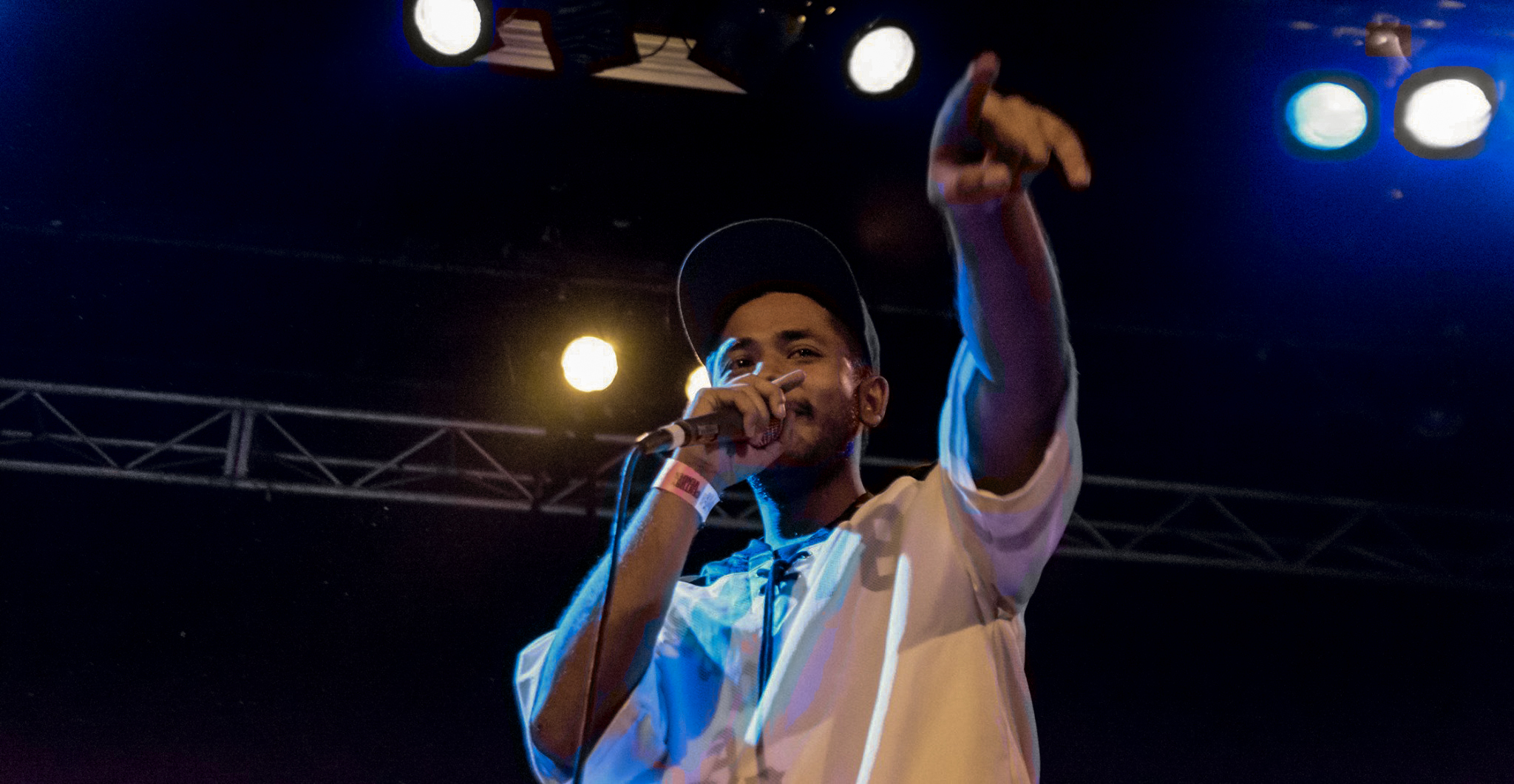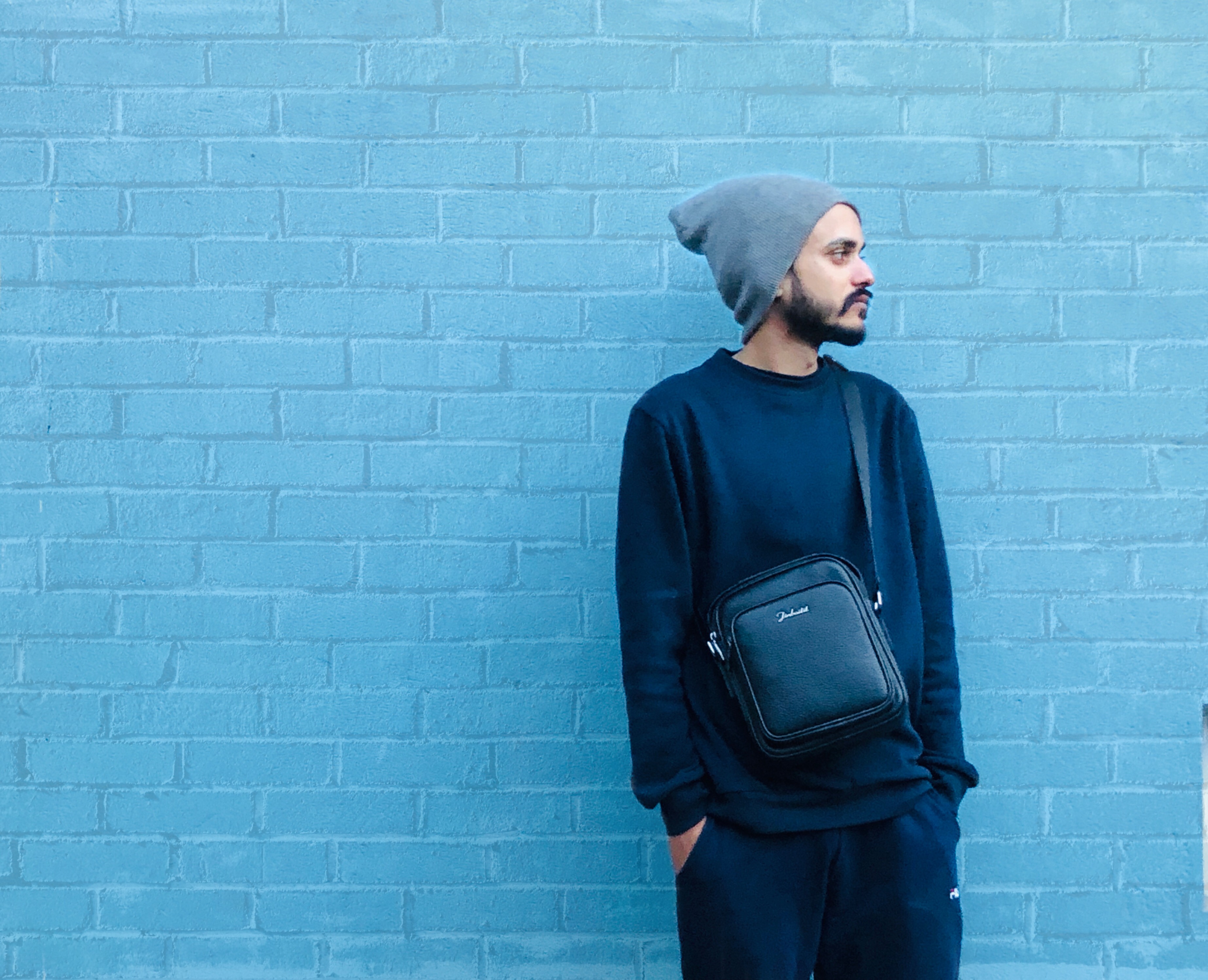Here’s What Hip-Hop Looks Like in One of the World’s Poorest Countries
Credit to Author: Arun Budhathoki| Date: Thu, 28 Feb 2019 20:16:18 +0000
This article originally appeared on VICE ASIA.
Nepali rapper Prakash Neupane hails from Nepalgunj, a 12-hour car ride from the capital Kathmandu. But the 21-year-old has since migrated to the city in order to gain musical success. This is where the producers are, and as a hip-hop artist trying to make it big in Nepal, he needs whatever help he can get.
“Hip-hop has just risen in Nepali society and people don’t know much about it, about rap, about hip-hop,” he told VICE. “Since I was in school, I was already engaged in hip-hop and my move helped me to create more music because in the capital there are many studios, producers from which I could learn more and record more music.”
Prakash was 16 when his first official song Aaideuna, a romantic love song for teenagers, was released. He now has 32 songs and three albums to his name, but his topic of choice for his music has since evolved. His latest, Bang Bang, is a political rap song about civil war, the local Panchayat political system, and Nepal’s slow economic progress.

“Nepal had to deal with a civil war where thousands perished and then it took a decade to pass a new constitution. Those who had access to power became rich and powerful, but the general public remained poor,” he said, referring to the 10-year long civil war in Nepal from 1996 to 2006. “This is why I want to alert the political fraternity through my hip-hop music.”
Nepal is ranked the 19th poorest countries in the world, with an average annual income of just $1,347. The country remained a closed society until the dawn of the 90s when Internet, globalization, and migration brought changes to the country and inevitably, the Nepali music industry. The last decade prior to the 2000s ushered a new wave of Nepali hip-hop or “Nephop,” in the Himalayan nation. Fast forward to 2019, young Nepali rappers like Prakash are breaking the traditional concept of what hip-hop music should be.
The growth of Nepali hip-hop can be credited to a grassroots, freestyle rap battle event called Raw Barz which started in 2013, from which several rappers have emerged. Today, rappers speak on different themes—from politics to love, social injustice to corruption. The rap event, streamed only on YouTube, has so far seen 4 seasons, and has since extended to Raw Barz USA.
One of the most successful artists to come out of Raw Barz is Utsaha Joshi aka Uniq Poet. Uniq’s recent collaboration with Sacar Adhikari aka Lil Buddha, widely known as the King of Nephop, has crossed 2.5 million views on YouTube.
The numbers are indicative of the growing influence of Nephop.
“Raw Barz gave me a lot of exposure which I wasn’t ready for at that time, to be honest. I did the battles because I was a total rap geek. Being famous and turning this passion of rapping into a career was never on my mind,” Uniq said.
His fame has also allowed him to sing about his skin colour, in an attempt to dissuade racism: “I talk about it because I accept who I am.” And while he hasn’t commercialized his music yet, Nephop, he said, “definitely has reached masses which might help keep a rapper fed.”

This is yet another marker of the genre’s growing success: money.
“I think the hip-hop community in Nepal is growing massively. And I am fortunate enough to be able to do what I love these past years and still be able to continue,” Samir Ghising aka VTEN, an emerging young rapper, said. “Many people now are accepting this culture and many are interested in pursuing it as a career.”
The scene is only expected to get bigger as producers like Suraj Thapaliya aka Hype are working to make sure it grows beyond just grassroots efforts, to be even more lucrative. Hype is the founder of the Nepali trap movement, Trap Nepal.
“I think the whole music industry in Nepal is on a transitional phase at this moment. It’s still going to take some time for people to be convinced about digital distribution, streaming royalties, and so on,” he said. “A lot of artists are doing very well at the moment for their career as there are more opportunities of live shows and gigs than before but the traditional concept of album sales needs to be rejuvenated.”
Although Nepal is a few years behind on monetizing hip-hop music, Hype said he is working with various artists to create albums to sell, to encourage them to veer away from just uploading songs on YouTube. “We’re planning to release them through online outlets like our own website, iTunes, Spotify, and others,” he said. “A record label is possible in Nepal and any other country. We just need to find a way that generates 1 rupee when a song is played 10 times.”
For older artists, this progression of hip-hop since it first came to Nepal is at once new and refreshing.

“Back then, hip-hop was still emerging as its own genre of music. Nepali hiphop was still fairly unknown to the general public. Now hip-hop has evolved a lot since we started and younger rappers are coming up with their own styles and sounds,” Manas Ghale, a veteran rapper and the member of rap group Nepsydaz, said.
“We also have Nepalese rappers living abroad that are influencing the genre very heavily. Overall, the growth of hip-hop in Nepal in the last decade has been a very positive one and I’m very excited to see where it is headed.”
He’s right to be enthusiastic, with the breed of emerging artists.
Prakash, who plans to go abroad for further studies, vows not to let being away stop him from continuing to create music.
“I have seen lots of other rappers totally vanish after they migrate. But I will continue my musical career wherever I’ll be and hope one day it’ll help me to go big in the Nepali hip-hop scene,” he said, sharing his plans to release one album every year.
VTEN – who despite having had a stone thrown at him by an audience member in a recent concert for reasons yet unknown – also said he isn’t going anywhere anytime soon.
“In coming days, you will still see me learning and doing what I do the best. Hip-hop in Nepal is growing rapidly,” he said. “Don’t just expect from me but from the whole hip-hop community in Nepal.”
“We are here for the culture and we do want our art to be appreciated. I hope in coming days, people realize that we don’t just rap because we have nothing to do, we rap because it’s everything to us.”
This article originally appeared on VICE ASIA.